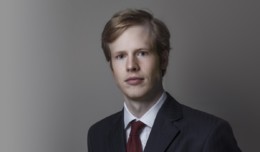An expert free for all: Bux v GMC [2021] EWHC 762 (Admin)
Dr Bux produced expert medical reports on “an industrial scale” to support insurance claims. These reports “invariably” supported the claim. Between 2016-2017 he churned out a total of 684 reports and earned £123,120 for his pains. The court found no evidence he ever produced a negative expert opinion.
In doing so Dr Bux did not declare any conflict of interest despite the fact all these reports were in fact commissioned by the same firm where his wife worked as a salaried partner. His fees, moreover, were paid into a company in which his wife held a 45% share.
Ultimately, his report factory came to the attention of the GMC and perhaps unsurprisingly this ended in his erasure from the Medical Register on the basis – amongst other failings – that he had failed to declare this conflict of interest.
In rejecting his appeal, Mostyn J produced a useful review of the authorities relating to the duties of expert witnesses. He also analysed where a conflict of interest may arise. An expert “will be conflicted not only when a personal influence actually influences his testimony, but [also] when a personal interest is capable of influencing his evidence”. The first scenario “involves considerable moral turpitude”, the second type involves no wrongdoing but must be declared. In Dr Bux’s case a judge in County Court litigation had found – perhaps surprisingly – that this connection with his wife had not actually influenced the production of a report. This judgment was admissible but it did not bind the Tribunal. In any event this ruling did not address the second question – whether the personal interest was capable of influencing his report.
Most significantly, the court noted the “urgent” need for the GMC to reform its procedural rules. Both the GMC and defence called medical expert evidence commenting on Dr Bux’s breach of his obligations as an expert witness. Mostyn J robustly rejected the relevance and admissibility of such evidence.
“I cannot see how the MPT would be assisted by opinions from medically qualified professionals in understanding what the legal test was for a conflict of interest and the concomitant duty of disclosure, and whether that legal test was satisfied on the facts. The questions are essentially legal and factual and not medical or technical…
I struggled to understand what skilled knowledge and experience they brought to an understanding of the legal content of the test for conflict of interest and its concomitant duty of disclosure. So far as I could tell they were no more knowledgeable or experienced in the subject than were the MPT members”
The fact such evidence was called at all caused Mostyn J’s to express his dismay at the total lack of any procedural rules governing expert evidence – a point he also addressed in Towuaghantse v GMC [2021] EWHC 681 (Admin). In civil proceedings such evidence requires permission, and such permission will only be granted if such evidence will “reasonably assist” with the resolution of the case – “If the court can decide the issue without reasonable assistance from an expert, then it should do so”. In family proceedings the bar is higher – such evidence must be “necessary”. In contrast, the GMC rules currently allow an “old-fashioned free-for-all”. No permission is needed. Any number of reports can be commissioned and called.
On the facts, the Tribunal’s reliance on such expert evidence was immaterial. The underlying factual evidence was such that the Tribunal was entitled – and indeed bound – to find Dr Bux had acted in breach of his expert duties.
No doubt the regulators will take note of this observation and a more robust and structured approach to expert evidence can be expected in the near future.
Categories: Newsletters


